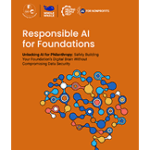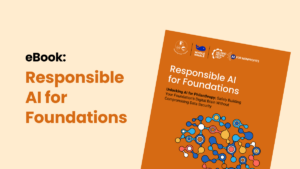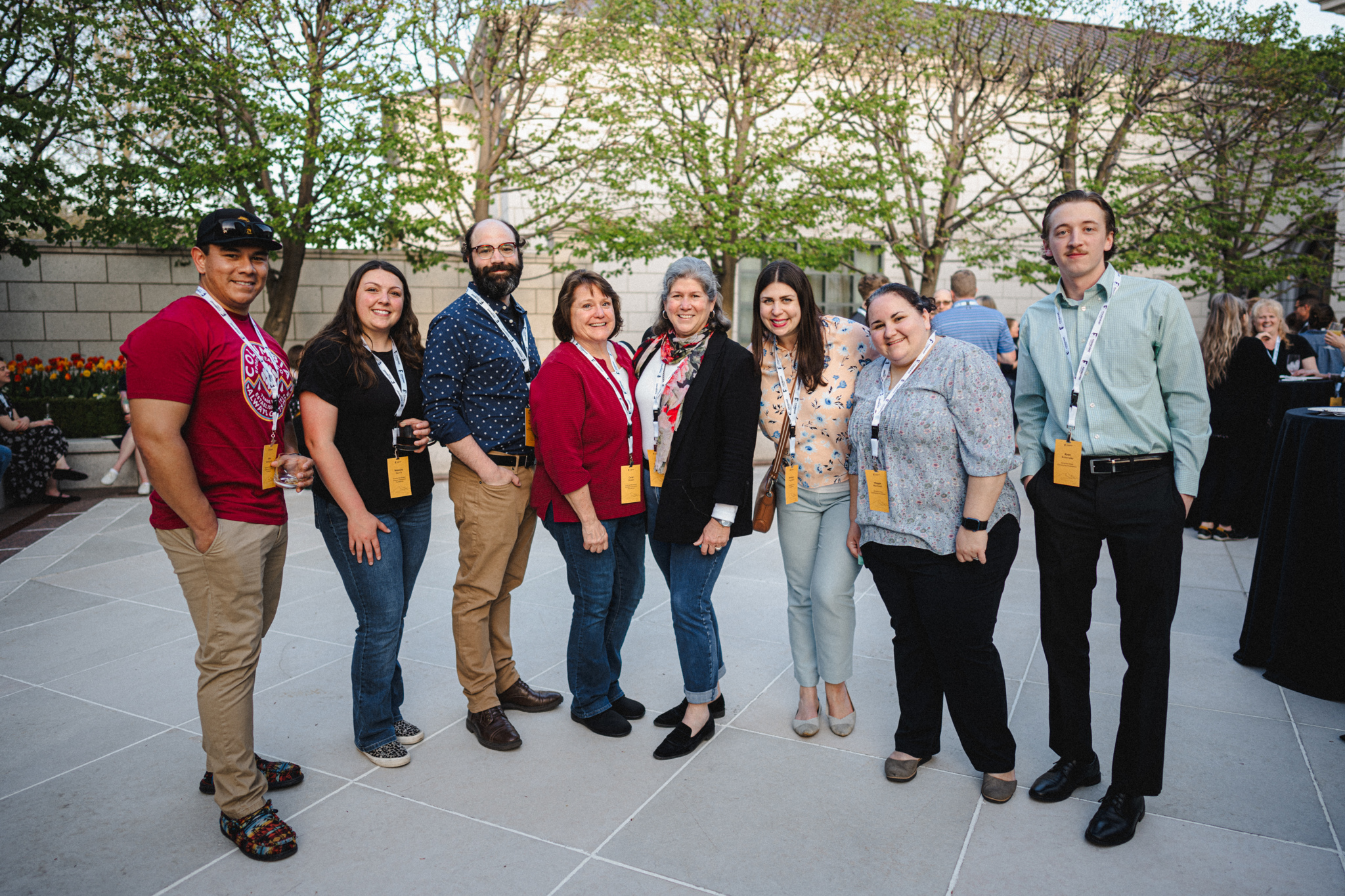Family philanthropy is often a multigenerational effort, with values and decision-making passed down over time. In fact, more than 60% of family foundations say that engaging the next generation is a top priority.
As younger family members step into leadership roles or join staff committees, many foundations feel a renewed push to modernize their grant lifecycle management. They want processes that are clear and easier to navigate, especially for small teams balancing growing workloads.
These expectations are shaping what “next-gen ready” looks like for family foundations today.
What does “next-gen ready” grantmaking really mean?
72% of family foundations say their mission and program areas shape their giving strategies; a reminder that thoughtful philanthropy starts with clarity and intention. For forward-thinking foundations, being “next-gen ready” means building grantmaking practices that are adaptable, data-informed, and designed with equity in mind.
When AI is applied responsibly, it can simplify routine tasks, surface helpful insights, and give small staff teams the capacity to deepen their impact without stretching themselves thin.
What can (and shouldn’t) AI do in philanthropy?
Nearly one-quarter of grantseekers now use AI to streamline the grant application process. And while those tools can certainly make applying easier, AI can be just as helpful on the funder side, especially for family foundations with lean teams managing a full grant lifecycle.
When used thoughtfully, AI can help foundations make smarter, more aligned funding decisions. Connected to a grant management system, it can support staff by:
- Recognizing patterns in large volumes of information
- Drafting clear summaries for reviewers
- Automating repeatable or time-consuming tasks
AI strengthens workflows. However, it does not replace the empathy, ethics, or lived experience that guide meaningful giving. Instead, its value comes from helping foundations move more efficiently toward the projects and communities that fit their mission.
How can AI improve the grant application process?
Family foundations often operate with lean teams, balancing a high volume of applications, reporting needs, and relationship-building duties with limited staff time. Automating the repetitive parts of the grantmaking process helps return precious time to program staff.
How can AI make applying easier for grantees?
AI-powered chat or help features can guide applicants through forms in real time. For many grantees, especially smaller organizations or first-time applicants, this added support can make the process feel far more approachable.
These same tools can answer straightforward questions about eligibility, deadlines, or required documents. By reducing confusion and cutting down on back-and-forth emails, foundations create a smoother, more accessible application experience for everyone involved.
How can it streamline application intake?
AI can automatically tag and categorize incoming applications by category, including:
- Funding area
- Geography
- Grant size
- Other custom fields
This reduces the manual sorting that often slows down early-stage reviews, helping staff quickly understand where each request fits within their priorities.
With Foundant’s Grant Lifecycle Manager (GLM), these capabilities work within an existing, secure grant management system. Everything stays in one place, and staff can move through intake with far greater ease.
Can AI support fairer eligibility screening?
AI tools can help create more consistent early-stage reviews by flagging incomplete or noncompliant applications. This reduces the chance that staff will spend valuable time chasing missing information and helps ensure that every application enters the process on equal footing.
Human reviewers remain essential. Staff make the final decisions and ensure alignment with funding priorities. AI simply supports staff efforts by bringing clarity and consistency to the process.
How does it improve applicant communication?
Automated messages can still reflect a warm, personal tone, ensuring communication feels consistent and human rather than transactional. AI can automate:
- Confirmation emails
- Reminders
- Status updates
AI can also suggest empathetic phrasing for decline letters to soften disappointment and reinforce your foundation’s commitment to fairness and respect.
When communication flows smoothly, applicants spend less time wondering about their status and more time focusing on their work in the community.
How can AI promote accessibility and equity?
AI-driven analysis tools can review application questions for readability, detect jargon, and flag language that may unintentionally disadvantage certain groups. These insights give foundations a clearer picture of where applicants might struggle.
With this information, staff can rewrite questions to be more inclusive, welcoming, and easier to navigate. By using AI, foundations make their applications more equitable, ensuring that a wider range of organizations can participate fully in the grantmaking process.
How do you build a strong data foundation for AI?
AI is most effective when it pulls from clean, consistent data. Before adding new tools to your grantmaking workflow, make sure your grant management system captures the same core fields across all applications.
A simple starting point is to standardize a few key data points, such as:
- Program area
- Geography
- Funding amount
- Applicant type
- Outcome area
From there, regular data reviews and clear definitions help keep information accurate and aligned across your team. These small practices make AI grantmaking tools work more reliably, and also support more informed and equitable grant decisions.
Learn more about how standardization is reshaping public-sector giving in Modernizing Municipal Grantmaking.
How can family foundations use AI responsibly?
As foundations use AI to multiply impact, responsible use is essential. Family foundations should approach implementation with the same care and intention they bring to their funding decisions.
Responsible use includes:
- Regular audits for bias: Review AI outputs to ensure they reflect your values of fairness and inclusion.
- Data privacy protection: Keep sensitive applicant information secure and limit access to the staff who truly need it.
- Human oversight: Ensure people remain involved at every key step, from eligibility checks to final funding decisions.
- Transparency: Let applicants know when AI tools are being used and how their data will be handled.
AI should amplify a foundation’s values, not replace them. When used with transparency and empathy, it becomes a tool that strengthens trust and supports thoughtful, human decision-making.
What metrics show AI is working?
Measuring AI’s impact helps foundations understand whether the tools are genuinely improving their processes. The most meaningful indicators reflect both efficiency and the overall applicant experience.
Consider tracking:
- Review cycle time: Are applications moving through the process more quickly?
- Staff hours per grant: Has automation reduced the administrative load on your team?
- Applicant satisfaction: Are grantees finding the process clearer and more supportive?
- Data accuracy: Are your records cleaner, more consistent, and easier to report on?
- Equity in outcomes: Are funding decisions more balanced across applicant types or regions?
These metrics highlight points to progress toward a more inclusive, transparent, and responsive grantmaking system.
Start your next-gen AI pilot with Foundant
Family foundations have long been engines of community-minded innovation. AI simply offers another way to extend that legacy, helping make grantmaking faster, fairer, and
more human-centered for the people you serve.
Whether you’re looking to ease the strain on a lean team or explore how AI-driven insights can support better decisions, the right grant workflow management software gives you a secure, scalable place to start.
Start a conversation with Foundant to explore how AI can strengthen your foundation’s grantmaking.

eBook
Responsible AI for Foundations
Unlocking AI for Philanthropy: Safely building your foundation’s digital brain without compromising data security

